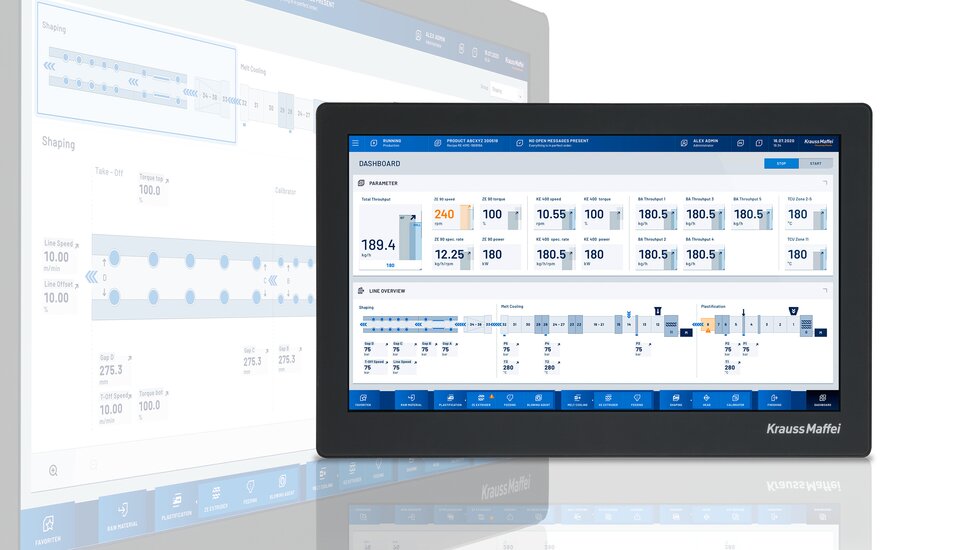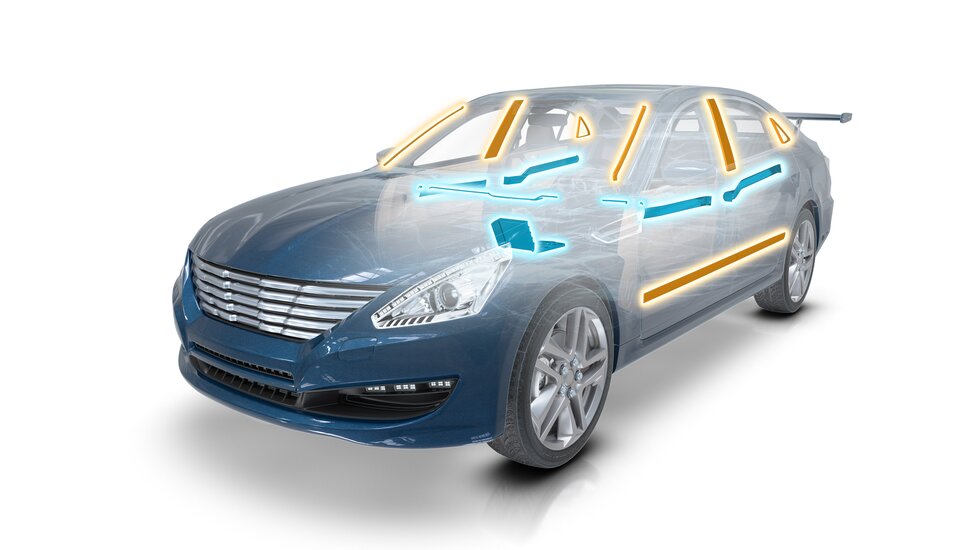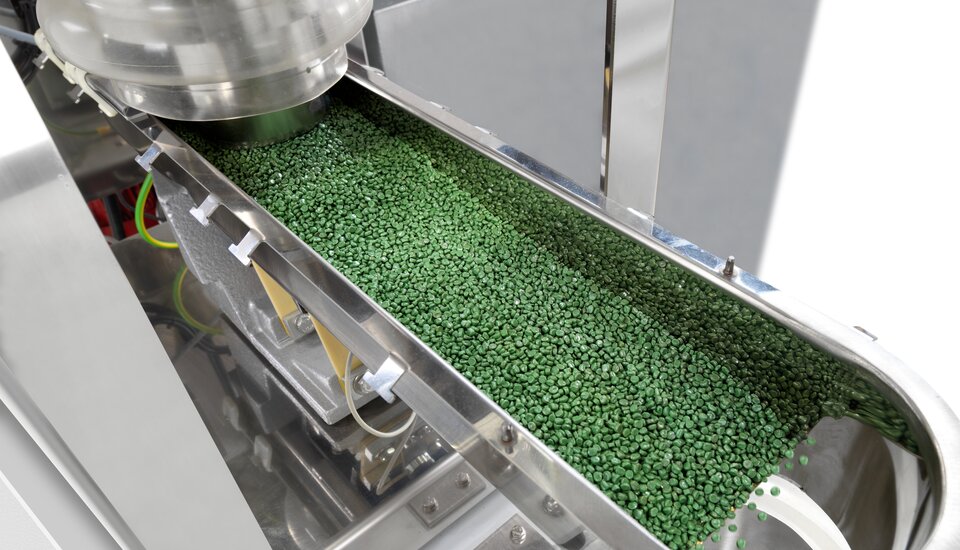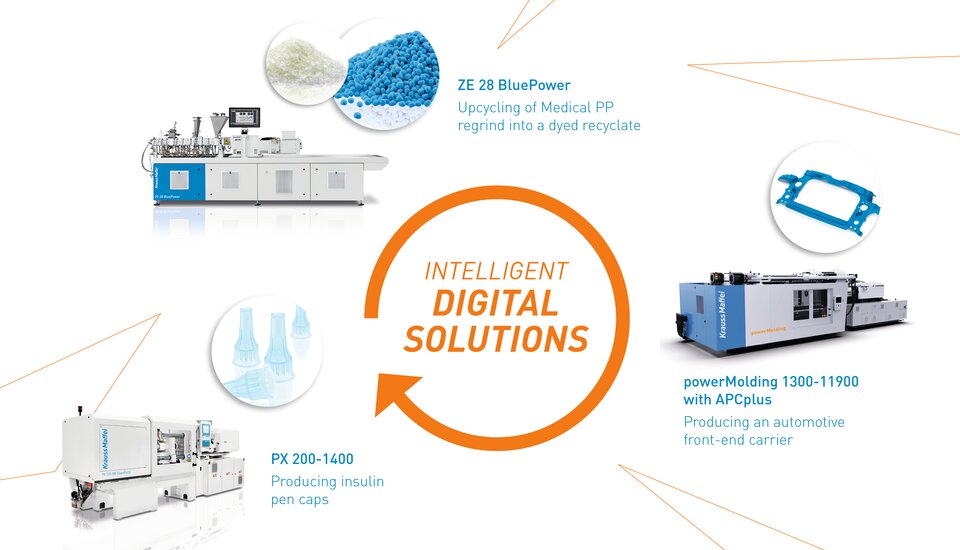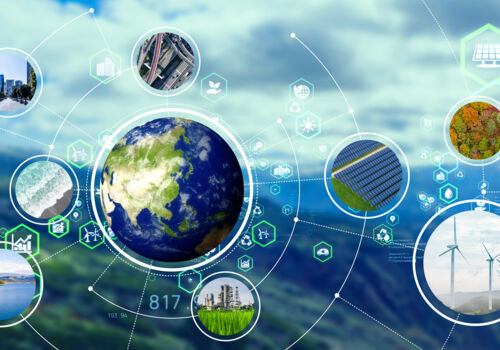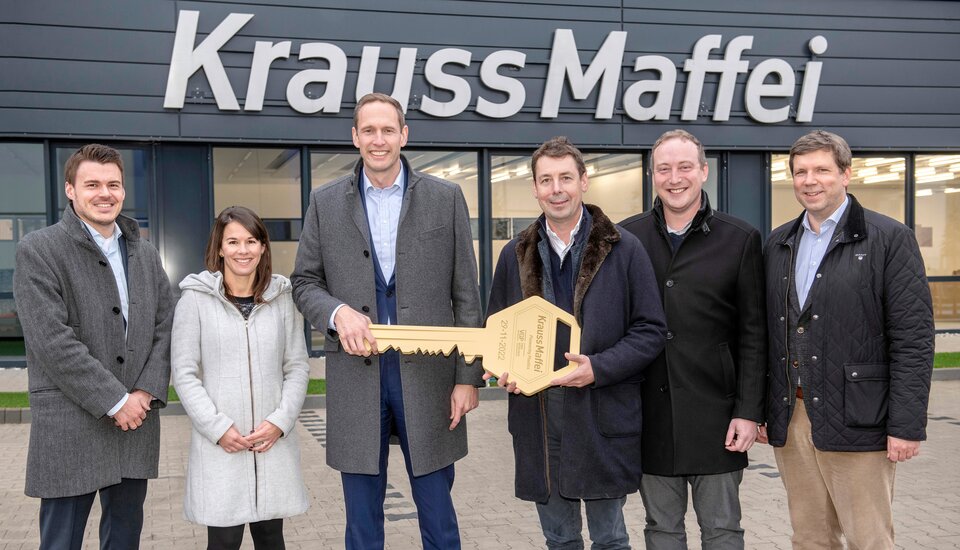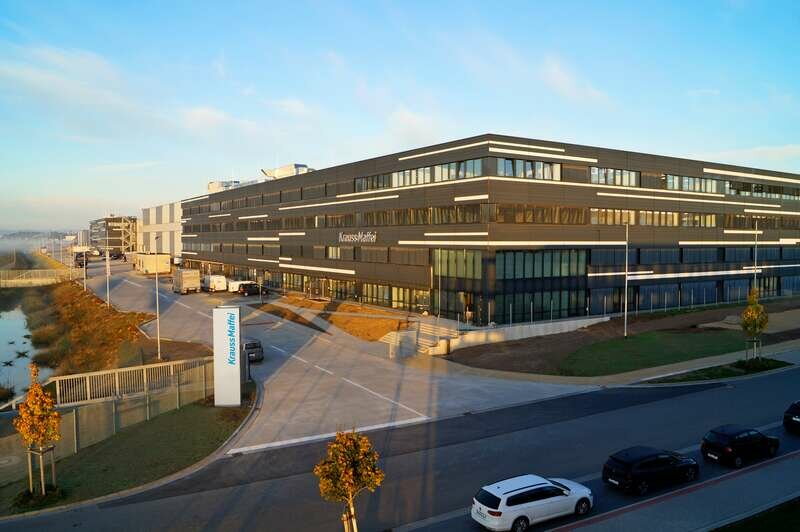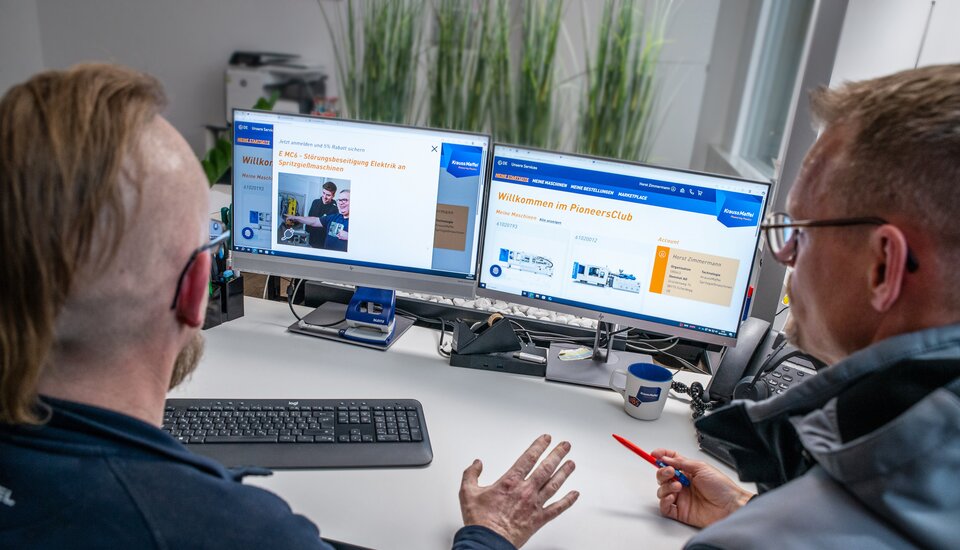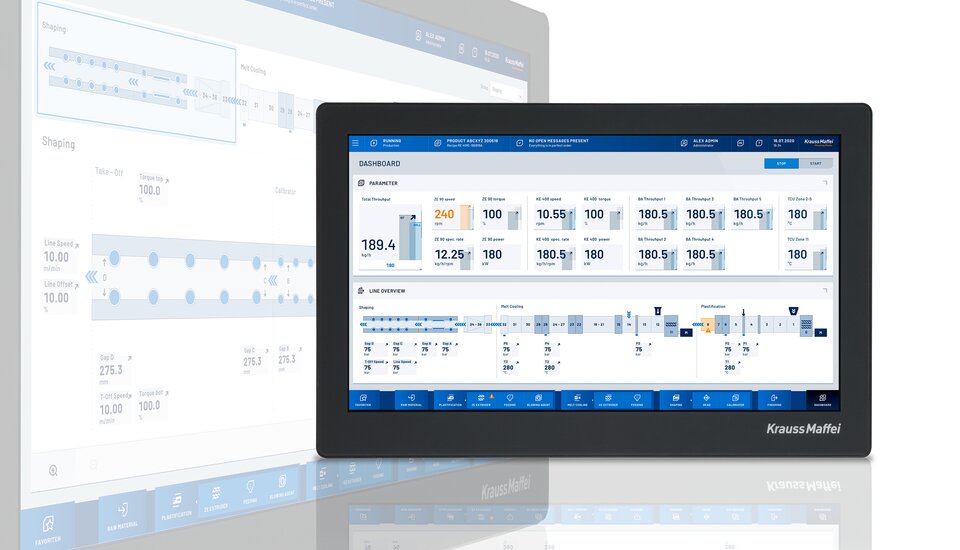
Sustainability
New answers for the recycling industry
| KraussMaffei
KraussMaffei combines the two big trends Circular Economy and Digitilization
A pioneer in the fields of plastics recycling, upcycling, and recompounding, KraussMaffei has been an active player in the field of recycling for over three decades. The Hanover-based company helps to smooth its customers’ entry to the circular plastics economy. In our interview Ralf J. Dahl, Director Sales Extrusion, and Carl Philip Pöpel, Director Product Management Extrusion, explain the potential of the circular economy and KraussMaffei’s strategies for the future in this field.
KraussMaffei
In its broadest sense, a circular economy means an economy without waste. How much of this idea is already reality, and how much of it is still a vision?
Carl-Philip Pöpel
Recycling has long been well-established for paper, metals, and glass and is widely accepted by consumers. The process took far longer for plastics recycling, but growing pressure from politicians and the public has now increased its acceptance. Now the aim is to establish a true circular economy that is comparable to the systems already in place for metals, glass, and paper. It’s a technically feasible idea; there is plenty of potential for upcycling used plastics into materials of as-new quality.

New offers in plastics recycling
Carl-Philip Pöpel (left) and Ralf J. Dahl have taken up the cause at KraussMaffei.
Dahl
Resource recycling has always been a matter of course across all branches of industry. However, for a long time there was no feasible way of recycling large volumes of plastics in high quality because of the contamination levels of the plastic and the technical limitations of the recycling process. In addition, there was little motivation to solve these problems and embrace recycling. This is now changing dramatically.
KraussMaffei
This must be a significant growth market for your company.
Dahl
Yes, absolutely. In Hanover we already generate over ten percent of our sales revenues and rising from plastics processing – even if our main business currently lies in processing new plastics.

Ralf J. Dahl:
"We already generate over ten percent of our sales revenues and rising from plastics processing."
KraussMaffei
What investments have been made in the area?
Dahl
The decision to invest over EUR 2.5 million in specialized equipment was made in 2018, and the new system will be installed in our technical center at the end of 2019. Known as “Edelweiss,” the concept is designed exclusively for circular economy and recycling applications. We will thus enable our customers and the industry as a whole to develop and qualify new processes and to satisfy themselves of the quality of our performance.

The Edelweiss line
is designed especially for recycling applications.
Pöpel
We have also invested in a comprehensively equipped analysis laboratory. This facility is particularly important in recyclate processing because it enables us to perform in-depth analyses of the properties of the input materials, and later the upcycled end product. Very often, material flows fluctuate dramatically with respect to the type and contamination level of the input material, and this accordingly impacts on the process and the achievement of the target quality.
"Waste flows are now many times higher than a few years ago."Ralf J. Dahl, Director Sales Extrusion
KraussMaffei
What kind of changes have emerged in plastics recycling over recent years?
Dahl
The industry is constantly developing. Numerous mergers are taking place between waste disposal companies and processing specialists and, as recently seen, there are acquisitions of recycling companies by large-scale chemical groups. This impacts profoundly on the volumes and processing capacities involved. Today’s waste streams are many times greater than they were just a few years ago.
Pöpel
The market is currently extremely dynamic, with a trend towards high tonnages as global players enter. These are not only brand owners, but virtually all stakeholders along the supply chain. And this means that we need to be able to apply completely different technology approaches compared to the conventional recycling systems of the past.
KraussMaffei
Where do you look for support, and who are your permanent partners? Do you engage in collaborations?
Pöpel
We are planning a cooperation with the University of Hanover. Its newly established IKK (Institute for Plastics and Circular Economy), headed by Prof. Dr.-Ing. Hans Josef Endres, offers us a unique opportunity to gain scientific support for our technology.

Opening of the Mechanical Engineering Campus of Leibniz University Hannover
Prof. Dr.-Ing. Hans-Josef Endres, Head of the Institute of Plastics Technology, Uwe Altena, Managing Director KraussMaffei Extrusion, Thomas Eloo, Maag Group and Carl-Philip Pöpel, Head of Product Management KraussMaffei Extrusion (from left) in the new centre of the Institute of Plastics Technology.
Dahl
As far as we know the Institute is the first and only such facility to focus explicitly on the circular economy in plastics technology. It serves as an essential interface between theory and practice and enables us to trial new research ideas on an industrial scale. We are further engaged in specialized individual collaborations with our customers as well as with suppliers and technology partners in Europe.
KraussMaffei
Where do you see areas of particularly high growth?
Pöpel
In terms of the main waste flows, a high-growth area would be polyolefins, primarily packaging material. But the markets in other industries such as automotive and construction/infrastructure are also extremely interesting.

Carl-Philip Pöpel:
"My vision for 2030 is: Circular Economy is standard in the plastics industry, we don't have to talk about it much more. KraussMaffei will have been a major driver of this development."
KraussMaffei
With respect to plastics in general, do you notice any particular attitudes or reservations that are impacting on, or even impairing, business?
Dahl
It’s vital to steer debate away from emotionalism to and keep the topic on a factual basis of the technologies and physics involved. We call on to consumers to collect plastics and take them to where they can be dealt with in a managed way by the industry. The necessary waste processing and upcycling technologies are already in place. It’s only a question of will and of appropriate legislation and its implementation. If we manage and control these material flows, they can be used to produce something useful while significantly cutting the volume of waste at the same time.
Pöpel
This can best be shown by the example of two material flows that are already well established as part of the recycling process. One is PET - the material used to make water bottles. Up to 95 percent of these bottles are already recycled in Western Europe in a collection process initiated by consumers themselves. The other concerns PVC in the construction and infrastructure industry, which is more an issue of industrial recycling. The vast majority of this material has already been fully recycled in the circular economy for decades. Both examples show that it can work.
KraussMaffei
What major challenges do you see for the future?
Dahl
Composite materials present the biggest problems because they are made up of different but inseparable plastic types. Here, new forms of chemical or solvent-based processes are used to target and separate a specific material. Although some of these processes are currently still in the development stage, the first pilot systems are already in operation. We believe this area offers enormous potential and are able to supply solutions based on our technologies. In addition, the packaging industry is working on recycling-friendly designs to avoid composite films where possible.
Pöpel
The three areas of recycling in which we operate are: mechanical recycling as the foremost area, then solvent-based recycling, followed by chemical recycling. In the latter, the polymers are broken down into a feedstock material similar to crude oil. In addition to mechanical recycling, our main focus is on solvent-based recycling, a molecular-level process that delivers a product comparable to virgin plastic.

Ralf J. Dahl:
"We'll show what we can do at K and provide new answers for the recycling industry."
KraussMaffei
At K, the plastics trade show, your company presents a simulated production process that transforms a standard packaging bucket into a car A-pillar. Why do you go to all this effort?
Dahl
It’s important to us to showcase what we can do. Our innovative strength in recycling and the circular economy is not universally known yet. K gives us the opportunity to demonstrate it in front of a specialist audience. Our cross-functional simulation spans injection and extrusion and presents the production and lifecycle of a technically advanced automotive part from a simple item of packaging. What we are basically doing is using proven technologies in a new way and for a new purpose, providing the recycling industry with new answers.
Pöpel
At the trade show we will combine the two major trends of circular economy and digitalization. We will do this on the one hand with extremely advanced automation and batch tracking plus in-line and online quality surveillance. On the other hand, polymore.com, the startup we founded, offers a digital marketplace that brings together compounders, recyclate suppliers, and processers to conduct straightforward, secure trading in plastics products. This is an exciting future-forward solution because the industry depends on reliable raw material streams. The platform can be used for both virgin materials and recyclates. KraussMaffei is applying its expertise and familiarity with products, manufacturing, markets, and customers to unlock new procurement channels for the industry. By doing this, we are playing a pioneering role.
KraussMaffei
Let’s take a look at the future. What status will the circular economy have over the coming years in the industry in general, and KraussMaffei in particular?
Pöpel
In my vision for 2030, the circular economy is standard in the plastics industry and there is no need for any great discussion about it. I firmly believe this will be the case, and KraussMaffei will have been a key driver in this process.
Dahl
I fully agree. We will obviously not be able to do without plastics in the future, so “plastics bashing” has to stop. Plastic is a vital and valuable material without which our modern world could not exist. We only need to treat this resource responsibly and move on from its disposable image. It’s crucial that plastic is granted the status of value that it deserves, and when that happens we will arrive at a functioning circular economy.
